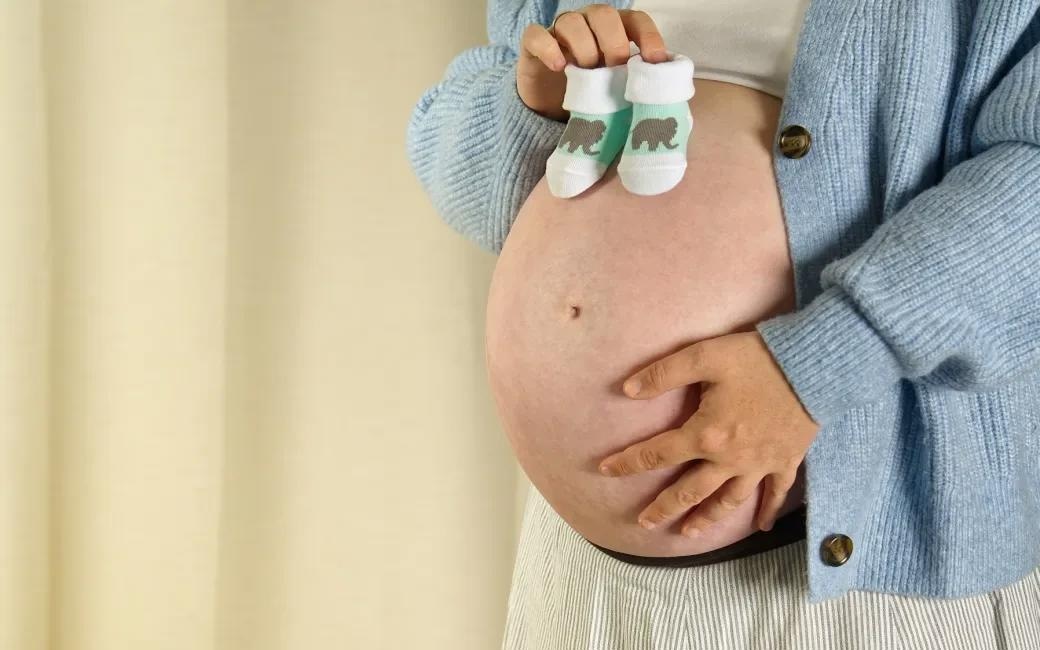Reviewed by Danielle Ellis, B.Sc.Jan 4 2023
For the first time, researchers at the University of Helsinki in Finland examined the effects of prenatal alcohol exposure on the epigenome and gene function of the placenta. The epigenome is a molecular coating on a DNA strand that controls how genes are expressed. The most well-known epigenetic regulator is DNA methylation, which was the subject of this study.
 Novel information on the effects of early alcohol exposure was gained by studying alcohol-exposed human placentas and cultured human embryonic stem cells. Image Credit: Mostphotos
Novel information on the effects of early alcohol exposure was gained by studying alcohol-exposed human placentas and cultured human embryonic stem cells. Image Credit: Mostphotos
In cooperation with MD Hanna Kahila, a specialist in antenatal substance use care at Helsinki University Hospital, a cohort of 80 newborns exposed to alcohol and 100 control newborns was gathered.
When the placental epigenomes of newborns who had been prenatally exposed to alcohol were compared to controls, a significantly lower level of DNA methylation was found.
The placentas of newborns whose mothers drank alcohol up to the seventh week of pregnancy at the most were chosen for separate analyses to study the early effects of alcohol exposure. Human embryonic stem cells were also exposed to alcohol while being cultured to examine the effects of alcohol exposure on the first human cells.
We observed similar alcohol-associated alterations in DNA methylation in placenta and in cultured human embryonic stem cells.”
Pauliina Auvinen, Doctoral Researcher, University of Helsinki
This suggests that alcohol exposure, rather than maternal smoking or other environmental factors during pregnancy, is responsible for the observed alterations. It is challenging to rule out these confounding factors in any human study.
The newborns who had early exposure to alcohol did not differ from the controls in terms of height or weight at birth, but they did have noticeably smaller heads. The researchers believe that this could indicate the harmful effects of early prenatal alcohol exposure on brain development.
Additionally, this highlights the significance of the early intrauterine environment for fetal development in addition to the observed epigenetic changes.
“Epigenetic fingerprints” of alcohol exposure enable early diagnosis of developmental disorders
The current study found a special relationship between the development of the nervous system and the genes with alcohol-associated DNA methylation changes in both the placenta and embryonic stem cells.
Alcohol induced similar changes in DPPA4 gene in the placenta and in embryonic stem cells differentiated towards neural cell lineages. This gene is only expressed at the very beginning of embryonic development and the produced protein facilitates the cells to differentiate. It is therefore a necessary gene for embryonic development.”
Nina Kaminen-Ahola, Study Lead and University Lecturer, Department of Biochemistry and Developmental Biology, University of Helsinki
Additionally, drinking was linked to modifications in the DNA methylation of the FOXP2 gene, which is important for the embryonic development of speech regions in the brain.
Kaminen-Ahola stated, “Both these genes affect large gene regulatory networks and development. Alterations in their functions may disrupt the tightly regulated embryonic development and consequently cause a wide variety of developmental defects. Since these alterations occur in the early development, they can remain as the epigenetic memory of cells and be potentially transmitted to different cell and tissue types along cell divisions.”
The “epigenetic fingerprints” of prenatal alcohol exposure, as they are known, are proposed to be future biomarkers that could help with early diagnosis and individualized child development support.
Fetal Alcohol Spectrum Disorders, also known as FASD, are a wide range of birth defects brought on by prenatal alcohol exposure. One of the main causes of neurodevelopmental disorders is alcohol. It can be challenging to diagnose the birth defects brought on by prenatal alcohol exposure, and the actual number of children who are affected is unknown.
Source:
Journal reference:
Auvinen, P., et al. (2022). Chromatin modifier developmental pluripotency associated factor 4 (DPPA4) is a candidate gene for alcohol-induced developmental disorders. BMC Medicine. doi.org/10.1186/s12916-022-02699-1